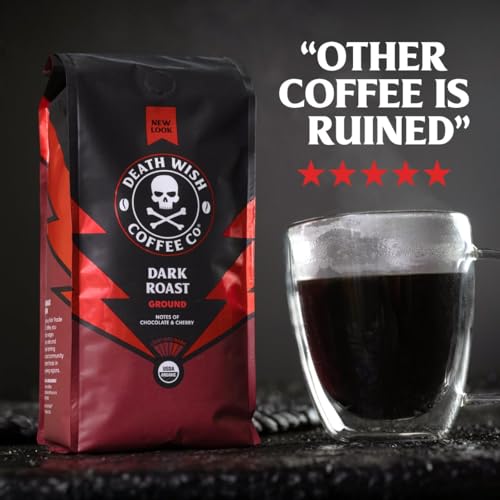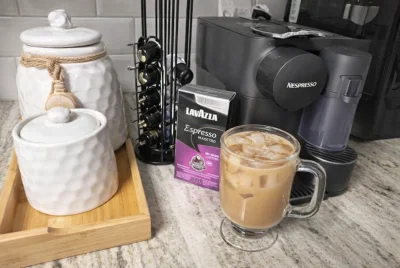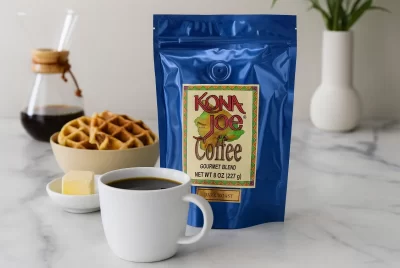Brewing Change: A Guide to Sustainable Coffee Sourcing
*We may earn a commission for purchases made using our links. Please see our disclosure to learn more.
Over the past decade in the coffee industry, I’ve had the chance to see how much more goes into a cup of coffee than most people realize. From small family farms in Guatemala to large cooperatives in Ethiopia, I’ve seen firsthand how sustainable sourcing practices can make a huge difference. These practices don’t just help the environment, they directly improve the lives of farmers and their communities. Coffee is more than just a beverage, it’s a lifeline for so many people around the world.
Sustainable sourcing means supporting fair wages, preserving ecosystems, and giving farmers the resources they need to thrive. Every time you choose coffee with these values in mind, you’re making a positive impact. In this guide, I want to share my experiences and tips on how we can all do our part to make the coffee industry more sustainable. Whether you’re a casual coffee drinker or a passionate enthusiast, every choice we make counts toward a better, more ethical coffee future.
Key Takeaways
- Sustainable coffee sourcing focuses on fair wages for farmers. Eco-friendly farming practices that protect the environment, and supply chains that offer transparency, helping ensure coffee is grown responsibly.
- Direct trade relationships between coffee roasters and farmers often result in higher-quality coffee and more equitable compensation. Helping create long-term partnerships that benefit both the farmer and the roaster.
- Third-party certifications like Fair Trade, Rainforest Alliance, and Organic can serve as helpful guides. Providing consumers with reassurance that their coffee is sourced ethically, promoting workers’ rights and environmental protection.
- Shade-grown coffee promotes biodiversity by maintaining forests and natural habitats. Supporting shade-grown coffee helps preserve wildlife habitats and protects the delicate ecosystems in which coffee is grown.
- Consumer choices have the power to drive change. Small, thoughtful adjustments to buying habits, such as choosing sustainably sourced coffee, can have a huge impact on improving conditions in coffee-growing regions and supporting long-term sustainability.
Recommended Sustainable Coffee Products
Based on my experience and research, I’ve come across four exceptional sustainable coffee products that not only deliver great taste but also support ethical and eco-friendly practices. These selections prioritize sustainable sourcing, fair trade, and environmental preservation, making them standout choices for conscious coffee lovers.
Whether you’re looking for a rich, bold flavor or a smooth, organic brew, these coffees combine quality with responsibility. Here are four sustainable coffee options available on Amazon that I highly recommend:
Peet’s Coffee Organic French Roast Dark Roast
Peet's Coffee Organic French Roast delivers a bold, smoky flavor that is perfect for dark roast lovers. This 18-ounce bag of ground coffee is made from 100% USDA-certified organic beans, expertly roasted to bring out a rich and full-bodied taste. With its robust flavor profile and ethical sourcing practices, it’s an ideal choice for those who value quality and sustainability in every cup. Whether you enjoy it black or with your favorite creamer, this coffee offers a consistently satisfying experience.
- Rich, Bold Flavor: Provides a smoky, full-bodied taste that’s perfect for dark roast enthusiasts.
- USDA Organic Certified: Made with 100% organic beans for a cleaner, eco-friendly option.
- Sustainably Sourced: Reflects a commitment to ethical and environmentally responsible coffee production.
- Strong Flavor: May be too intense for those who prefer milder coffee.
- Ground Coffee Only: Not ideal for those who prefer whole beans for maximum freshness.
- Premium Price: Slightly higher cost compared to non-organic options.
- USDA Organic certified
- Direct trade partnerships
- Rich, complex flavor profile with smoky undertones
- Comes in whole bean form for maximum freshness
Peet’s Organic French Roast exemplifies the perfect blend of bold taste and sustainable sourcing. Crafted from USDA-certified organic beans, this dark roast delivers a smoky, full-bodied flavor that appeals to coffee aficionados seeking a robust brew. Beyond its exceptional taste, Peet’s commitment to sustainability ensures that each bag supports ethical farming practices and environmental stewardship. Whether you’re brewing a pot for a peaceful morning or sharing a cup with friends, this coffee offers a premium experience with a conscience.
Death Wish Coffee Ground Coffee
Death Wish Coffee Dark Roast Grounds is crafted for those who crave bold, intense flavors and a caffeine kick like no other. This 16-ounce, 2-pack features a potent blend of Arabica and Robusta beans, USDA Organic certified for a pure coffee experience. Renowned for its rich, smooth, and slightly nutty profile, this dark roast delivers an unparalleled energy boost. Whether you're kickstarting your morning or powering through the afternoon, Death Wish Coffee offers a strong yet smooth cup every time. Its commitment to sustainable practices adds an extra layer of satisfaction to each brew.
- High Caffeine Content: Perfect for coffee lovers seeking a powerful energy boost.
- Rich Flavor Profile: Combines bold, intense notes with smooth undertones for a satisfying cup.
- USDA Organic Certified: Guarantees a clean and environmentally conscious coffee experience.
- Intensity May Be Overwhelming: Not ideal for those who prefer lighter, milder coffee.
- Premium Price Tag: Higher cost compared to standard coffee options.
- Pre-Ground Only: Whole bean enthusiasts may miss the flexibility of grinding fresh.
- Fair Trade and USDA
- Organic certified Small-batch roasted
- Sourced from sustainable farms worldwide
- Known for its high caffeine content and bold taste
Death Wish Coffee Dark Roast is more than just a morning pick-me-up, it’s a statement of boldness and quality. Made with a potent blend of Arabica and Robusta beans, this coffee is designed to deliver maximum flavor and an unparalleled caffeine kick. Each sip reveals a robust, nutty character balanced by smooth undertones. Making it a favorite for those who appreciate intensity in their brew. Certified USDA Organic and crafted with sustainability in mind, Death Wish Coffee ensures that your caffeine fix doesn’t compromise the environment. This double-pack of dark roast grounds is ideal for those who value both flavor and impact.
Lavazza Organic Tierra! Whole Bean Coffee Blend
Lavazza Organic ¡Tierra! Whole Bean Coffee Blend is a premium light roast crafted for coffee connoisseurs who appreciate sustainability and superior taste. Made from 100% Arabica beans, this 2.2-pound pack of six offers a delightful blend of honey, dried fruit, and chocolate notes, delivering a smooth and aromatic experience in every cup. Certified USDA and Canada Organic, UTZ, and Euro Leaf Organic, this coffee reflects Lavazza's commitment to ethical sourcing and environmentally friendly farming practices. Its light roast profile is perfect for those who enjoy a delicate yet flavorful brew.
- Sustainably Sourced: Certified by multiple global organizations for organic and ethical production.
- Light and Aromatic: Features honey, dried fruit, and chocolate undertones for a unique flavor profile.
- Versatile Whole Beans: Provides flexibility for brewing preferences, from espresso to French press.
- High Price Point: Premium cost may not suit budget-conscious buyers.
- Bulk Packaging: Larger quantity may not be ideal for casual drinkers or small households.
- Light Roast Preference: Lacks the boldness some coffee enthusiasts seek in darker roasts.
- Rainforest Alliance certified
- 100% Arabica blend from organic farms
- Medium roast with notes of honey and dried fruit
- Supports sustainable farming communities
Lavazza Organic ¡Tierra! Whole Bean Coffee Blend is a shining example of sustainability meeting exceptional taste. This 100% Arabica light roast showcases a harmonious mix of honey, dried fruit, and chocolate notes that elevate your daily coffee ritual. Each bean is sourced from sustainable farms certified by USDA, Canada Organic, UTZ, and Euro Leaf Organic, reflecting Lavazza’s dedication to environmental stewardship. The versatility of whole beans caters to various brewing methods, offering a tailored experience for coffee lovers who value both quality and responsibility.
SF Bay Coffee Rainforest Blend
San Francisco Bay Organic Rainforest Blend is a 2-pound bag of medium dark roast whole bean coffee crafted for those who appreciate a balanced and rich cup. Made with premium 100% Arabica beans, this blend is USDA Organic certified and delivers a smooth, bold flavor with subtle hints of chocolate and nutty undertones. Sourced from sustainable farms, this coffee not only tastes exceptional but also supports eco-friendly farming practices. The whole bean format provides flexibility, allowing you to grind it to suit your preferred brewing method, from French press to espresso machines.
- Eco-Conscious Choice: USDA Organic certification and sustainable sourcing practices.
- Versatile Whole Beans: Offers flexibility for various brewing styles and grind preferences.
- Balanced Flavor: Smooth and bold with hints of chocolate and nuts.
- Medium Dark Profile: Might not satisfy fans of lighter or ultra-dark roasts.
- Bulk Size: The 2-pound bag may be too large for occasional coffee drinkers.
- Lack of Specialty Notes: Less distinctive compared to single-origin or boutique blends.
- Family-owned business supporting farmer communities
- Kosher certified and sustainably grown
- Medium-dark roast with full body
- Comes in compostable coffee pods
The Organic Rainforest Blend from San Francisco Bay combines sustainability with exceptional taste. This medium dark roast coffee, crafted from 100% Arabica beans, offers a well-balanced flavor profile that’s smooth and bold with delightful hints of chocolate and nuts. Certified USDA Organic, this blend is sourced from farms that prioritize eco-friendly practices, making it a responsible choice for the environment. Its whole bean format caters to a range of brewing preferences, allowing coffee lovers to enjoy a freshly ground cup tailored to their tastes. Perfect for those who want quality coffee with a sustainable impact.
Understanding Sustainable Coffee Sourcing
When I first delved into the world of sustainable coffee sourcing, I quickly realized that it’s about so much more than just protecting the environment. It’s an intricate network of social, economic, and environmental factors that all need to work together in harmony.
The Environmental Impact
Coffee farming has a profound impact on the environment, and how it’s managed can either contribute to destruction or preservation. For example, traditional shade-grown coffee plays a crucial role in protecting forest ecosystems. These types of farms create natural buffers for wildlife and provide essential habitats for migratory birds. On the other hand, the growing global demand for coffee has led some farmers to shift towards sun-grown coffee, resulting in deforestation to make room for more crops.
During my visits to various farms, I witnessed the stark contrast between the two practices. Shade-grown coffee farms thrive with biodiversity, birds chirp in the canopy, insects buzz around, and the soil is alive with microorganisms. In contrast, sun-grown coffee farms, while able to yield more in the short term, often face challenges like soil erosion and a heavy reliance on chemical fertilizers to maintain production levels.
Social Responsibility
Sustainable coffee sourcing also focuses on the people behind the coffee. Many farmers, despite coffee being one of the world’s most valuable commodities, struggle to make ends meet. This is where sustainable practices come into play. They ensure that farmers are fairly compensated for their work and are provided with the tools and resources to improve their farming methods.
I had the privilege of meeting Maria, a third-generation coffee farmer in Colombia, who shared how fair trade premiums have helped her cooperative build a new school and offer healthcare for workers’ families. This is the real-world impact of responsible sourcing, where conscious purchasing decisions have tangible benefits for the community.
Economic Sustainability
For coffee sourcing to truly be sustainable, it must make economic sense for everyone in the supply chain. This involves:
- Farmers being paid fair prices that cover their production costs and provide a living wage
- Importers and roasters maintaining profitable businesses while offering fair prices
- Consumers enjoying quality coffee at affordable prices
In my experience, direct trade relationships tend to create the most stable and mutually beneficial economic conditions. When roasters commit to sourcing from the same farmers year after year, it fosters long-term planning and investment in quality improvements on both sides.
Certification Standards
While certification systems aren’t flawless, they provide important frameworks for guiding sustainable sourcing. Some of the most widely recognized certifications include:
- Fair Trade: Focuses on ensuring fair compensation and workers’ rights.
- Rainforest Alliance: Focuses on environmental preservation and sustainable farming.
- Organic: Guarantees chemical-free farming practices.
- Bird Friendly: Requires shade-grown coffee combined with organic certification.
Through my experience working with certification agencies, I’ve witnessed how these standards, although sometimes bureaucratic, contribute to positive change in the coffee industry. They help hold stakeholders accountable and provide consumers with clear guidelines for making informed, responsible purchasing decisions.
Technology and Traceability
Advancements in technology have significantly transformed the way sustainable coffee sourcing operates. Blockchain technology, QR codes, and digital platforms now make it possible for consumers to trace their coffee’s journey from farm to cup. Having worked with several roasters on implementing these systems, I can attest to the transparency they offer, allowing consumers to understand exactly where their coffee comes from and how it was produced.
Climate Change Considerations
Climate change is increasingly affecting coffee production, as many traditional growing regions are becoming less viable for cultivation due to rising temperatures and altered rainfall patterns. As a result, sustainable sourcing must now include strategies that help farmers adapt to these changing conditions. This includes:
- Developing heat-resistant coffee plant varieties
- Implementing water conservation techniques
- Diversifying farm income sources to reduce dependence on coffee alone
- Supporting research into adaptive farming practices that can withstand climate challenges
The reality is that sustainable coffee sourcing is no longer just about choosing environmentally friendly farming practices. It’s about addressing a wide range of challenges, environmental, social, and economic, that require a holistic approach. As consumers, we can make a significant impact by choosing coffee brands that prioritize sustainability, traceability, and fairness at every stage of the coffee journey.
Looking to the Future
As I look ahead, I’m optimistic about the future of sustainable coffee sourcing. The industry is constantly evolving, and new solutions are emerging that not only meet today’s challenges but also anticipate tomorrow’s needs. Some of the most exciting developments include carbon-neutral roasting facilities, which significantly reduce the environmental impact of coffee production, as well as compostable packaging that helps cut down on waste. There’s also a growing movement towards farmer-owned processing facilities, which empower coffee farmers to have more control over the value of their product and create more direct benefits for their communities.
These innovations reflect a larger shift in the industry, a shift toward more responsible, sustainable practices that balance environmental, economic, and social factors. As the industry faces pressures like climate change and increasing demand, these efforts will be crucial for ensuring the long-term viability of coffee production. It’s inspiring to see businesses and farmers collaborating in creative ways to create a coffee future that is both sustainable and fair.
Conclusion
Sustainable coffee sourcing goes beyond just making us feel good about our morning cup; it’s essential to the future of coffee itself. As the demand for coffee continues to grow, it’s vital that we choose to support practices that safeguard the planet and the people who grow it. Every time we make a mindful purchasing decision, back certification programs, or demand more transparency from coffee brands, we’re contributing to a more sustainable coffee industry.
Having spent much of my career immersed in this field, I’ve witnessed firsthand how these actions can lead to meaningful change. It’s clear to me that every thoughtful choice we make has the power to shape the future of coffee for generations to come. The key is staying committed to supporting sustainable practices and continuing to innovate for a more equitable and environmentally-conscious coffee world.
FAQ
What’s the difference between Fair Trade and Direct Trade?
Fair Trade is a certification system with set standards and minimum prices, while Direct Trade involves roasters working directly with farmers, often paying higher prices but without formal certification.
Does sustainable coffee always cost more?
While sustainable coffee often costs slightly more at retail, the price difference reflects fair compensation throughout the supply chain. Consider it an investment in both quality and ethical production.
How can I verify if my coffee is truly sustainably sourced?
Look for third-party certifications, research the roaster’s sourcing practices, and check if they provide transparency about their supply chain. Many sustainable roasters share detailed information about their partner farms.
What impact does sustainable sourcing have on coffee quality?
In my experience, sustainable sourcing often leads to higher quality coffee because farmers have the resources and incentive to focus on quality rather than just quantity.
How can small changes in buying habits make a difference?
Individual purchasing decisions add up. When consumers consistently choose sustainably sourced coffee, it sends a clear message to the industry and creates stable demand for ethically produced coffee.
















